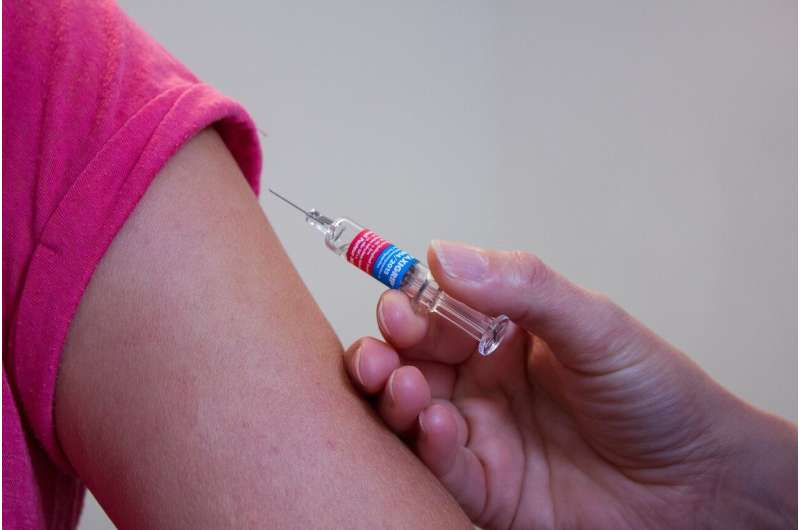Debunking Myths About mRNA Vaccines: How They Reduce COVID-19 Severity

Scientific evidence confirms that mRNA vaccines significantly reduce the severity of COVID-19 and do not promote viral mutations. Learn how these vaccines work and their role in ending the pandemic.
Recently, US health official Robert F. Kennedy Jr. announced plans to cancel $500 million (£374 million) of funding dedicated to mRNA vaccine research, citing unfounded concerns about their safety and long-term effects. This decision has sparked controversy, but it's crucial to understand the scientific facts surrounding mRNA vaccines.
Kennedy claimed that mRNA vaccines 'encourage new mutations and can actually prolong pandemics.' However, this assertion is misleading and contradicts the overwhelming scientific consensus. Extensive research shows that mRNA vaccines have played a vital role in saving millions of lives during the COVID-19 pandemic.
As an immunologist with years of experience studying respiratory viruses, I want to clarify that there is no credible evidence indicating that mRNA vaccines induce viral mutations—these are genetic changes that happen naturally as viruses replicate. Vaccines do not cause the virus to mutate; instead, the mutations already exist as part of the virus’s natural evolution.
Unlike traditional vaccines that use weakened or inactive viruses to trigger immunity, mRNA vaccines deliver genetic instructions to our cells, teaching them to produce a harmless piece of the virus—typically a surface protein. This training prepares the immune system to recognize and fight the actual virus if encountered, without causing illness.
Viruses constantly mutate as part of their life cycle. Each time a virus replicates, errors can occur, leading to mutations. Some of these mutations have no effect, while others may give the virus advantages like increased infectivity or immune evasion. Variants such as Alpha, Delta, and Omicron are examples of natural viral evolution that occurred over time.
Our immune system comprises various defenses, including physical barriers, innate immunity, and adaptive immunity—the latter being highly specialized. Vaccines, including mRNA types, act as a rehearsal, exposing the immune system to trace viral components so it can respond more quickly and effectively in real infections.
It's important to understand that vaccines are designed to enhance immune recognition, not to influence viral genetic changes. The mutations that generate new variants result from random replication errors and natural selection, not from vaccination efforts.
Despite concerns about variants, vaccines continue to provide significant protection. Cross-reactivity allows the immune system to recognize and combat similar viruses, reducing disease severity. As vaccination rates increase and the immune system adapts to circulating variants, COVID-19 has become far less deadly than in 2020.
In summary, mRNA vaccines are powerful tools in combating COVID-19. They do not cause the virus to mutate nor prolong pandemics. Instead, they help control the disease's severity and save lives, demonstrating the importance of ongoing vaccination efforts in managing infectious diseases.
Stay Updated with Mia's Feed
Get the latest health & wellness insights delivered straight to your inbox.
Related Articles
Research Shows Gratitude-Based Health Advertising Promotes Better Choices Than Fear Tactics
New research reveals that health campaigns utilizing gratitude and positive imagery are more effective in encouraging long-term healthy choices than fear-based tactics. Discover how compassionate messaging can enhance public health efforts.
New International Guidelines Address Visual Impairment in Stroke Survivors
A new international guideline developed by the European Stroke Organization provides evidence-based recommendations for screening and managing visual impairment in stroke survivors, aiming to improve diagnosis and treatment outcomes.
AI-Driven Research Uncovers Biological Factors Behind Higher Endometrial Cancer Mortality in Black Women
AI research has identified key pathological and genetic differences that explain the higher mortality rates of endometrial cancer among Black women, paving the way for more tailored treatments and improved prognosis.
Funding Cut by Trump Administration Halts Development of Life-Saving Baby Heart Device
A promising pediatric heart device development faces abrupt funding cuts, threatening progress in saving infants with severe heart defects. Learn more about this critical setback and its implications.



